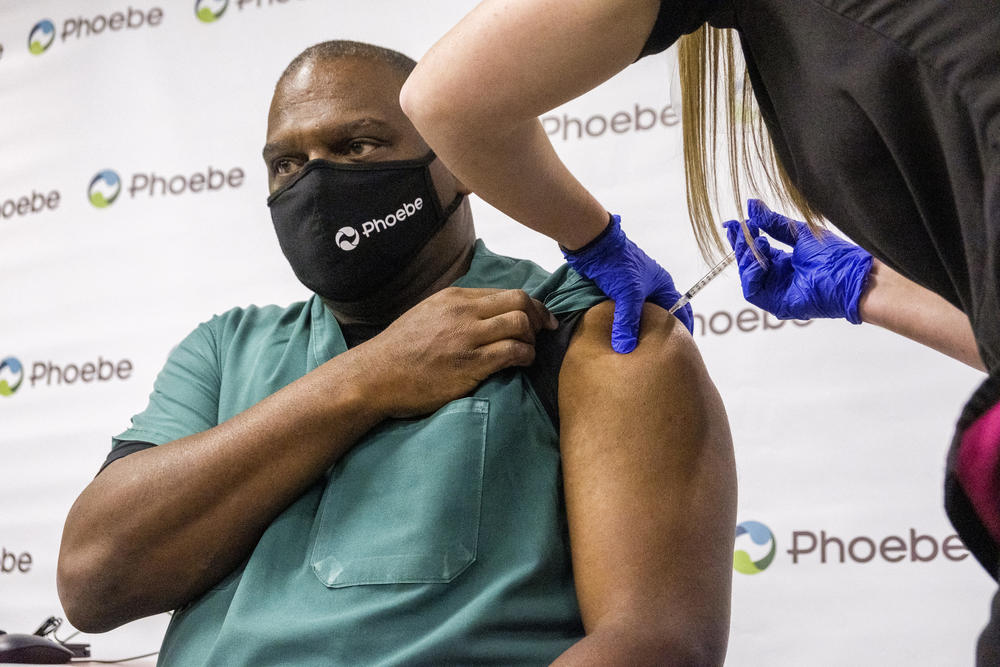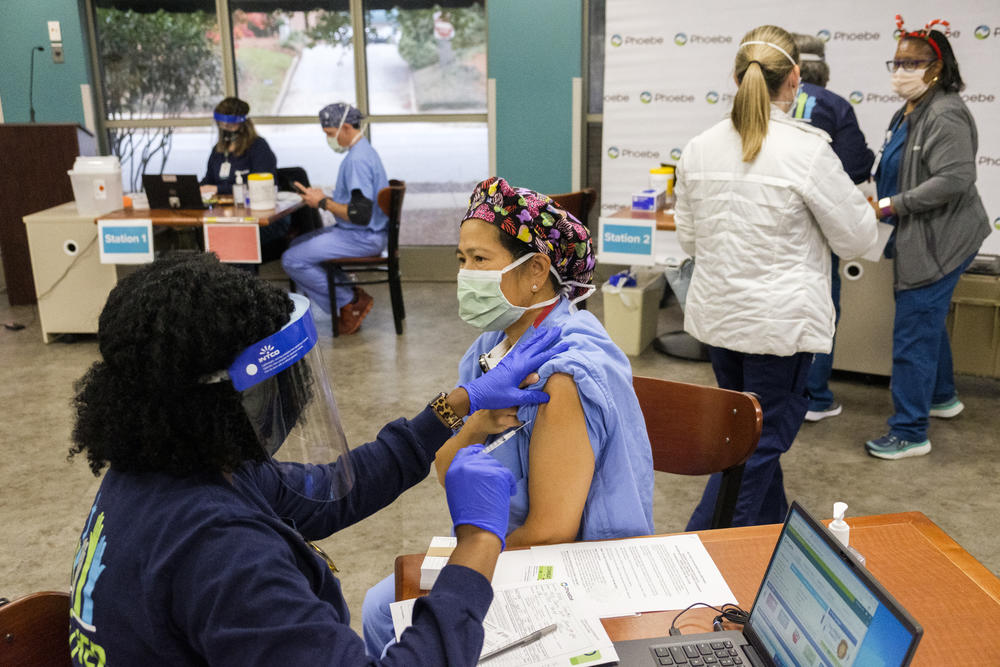
Caption
Dr. James Black, head of emergency medicine at Phoebe Putney Memorial Hospital in Albany, Ga, was the first to receive the COVID-19 vaccine Thursday in the city that was once among the most severely affected pandemic hotspots in the world.
Credit: Grant Blankenship/GPB


